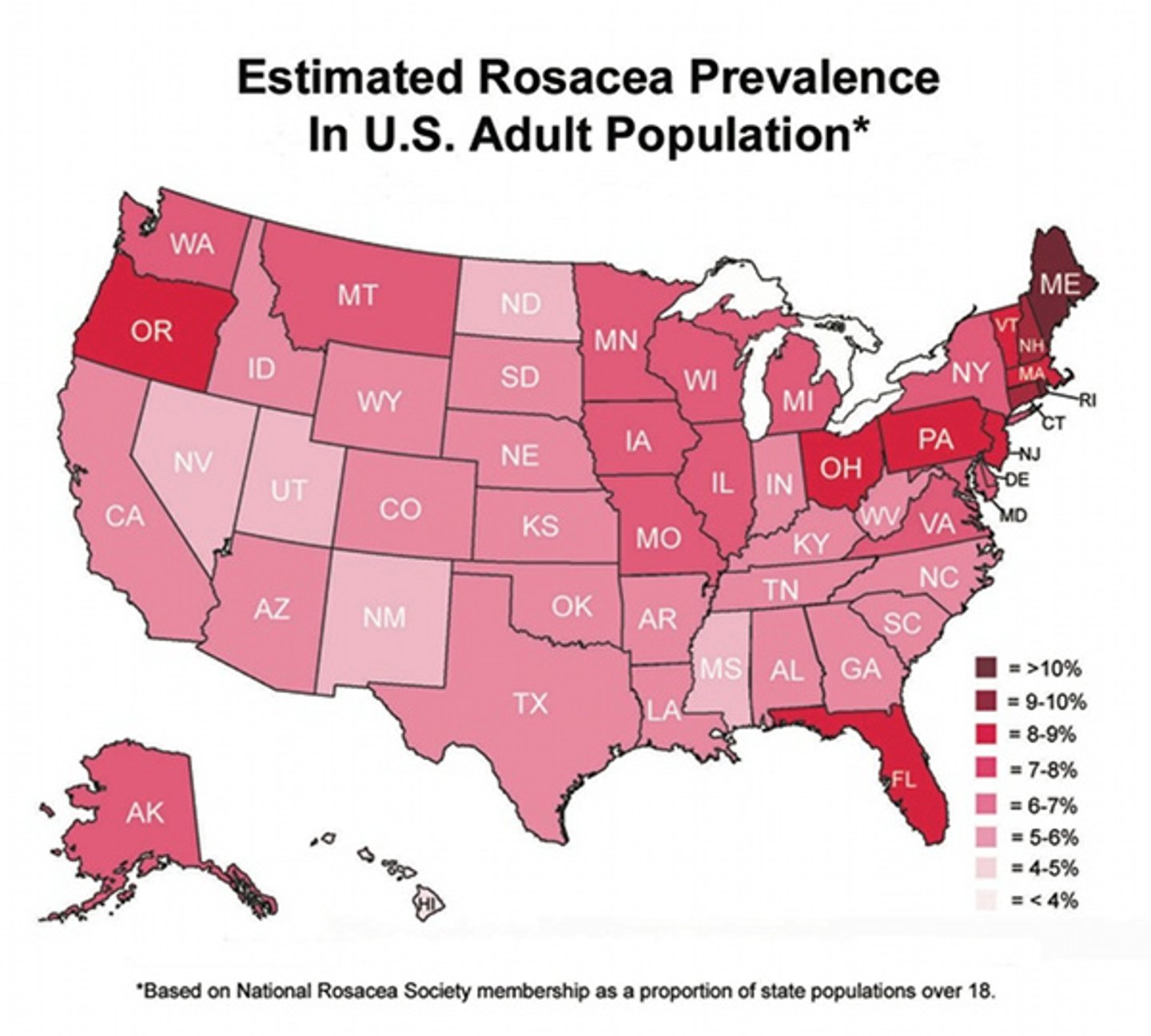Map illustrates state-by-state prevalence of rosacea
BARRINGTON, Ill. – The term "red state" takes on a new meaning when one looks not at politics, but at the incidence of a widespread but poorly understood skin disorder that causes reddening of the face.
According to the latest data from the National Rosacea Society, residents of New England appear to have the highest incidence of the disease, while those in Hawaii appear to have the lowest. Rosacea is estimated to affect more than 16 million Americans, with the greatest prevalence — more than 10% of the adult population — found in Maine, Rhode Island, New Hampshire and Connecticut and the lowest — less than 5% — in Hawaii, New Mexico, Mississippi and Oklahoma.
Rosacea usually begins after age 30 as a flushing or redness on the cheeks, nose, chin or forehead that may come and go, but over time becomes ruddier and more persistent. Without treatment, bumps and pimples often develop, and the nose may become swollen from excess tissue.
"While these figures provide only a rough estimate, they appear to be consistent with what is generally known about the disorder," former Food and Drug Administration director of dermatologic and dental drug products and rosacea expert Jonathan Wilkin said. "Rosacea has been found to be very common in the fair-skinned people of England, Ireland and northern Europe, so it's not surprising to see such a high incidence in New England, the industrial Midwest and other areas with large concentrations of these ancestries."
However, while some ethnic groups may be more prone to rosacea than others, it is found among all racial and ethnic groups. According to a survey of 600 rosacea patients by the NRS, nearly 52% reported having a family member who also had the condition, and 42% indicated they were of Irish, German or English ancestry.
"In addition to genetics, a more temperate climate may also contribute to this prevalence pattern, as changes in temperature are common factors that can exacerbate the condition," Wilkin said.

